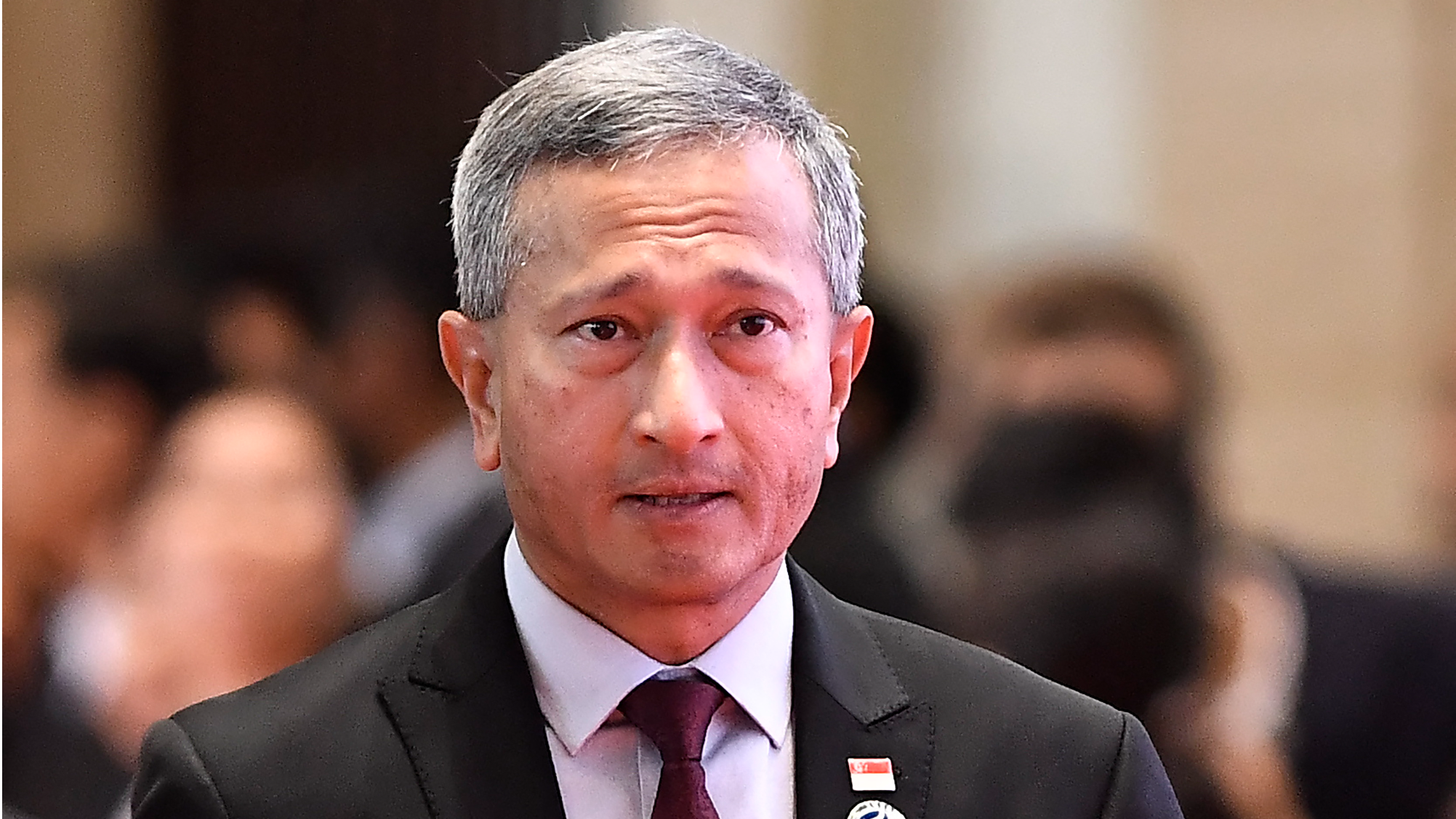
Regionalization — strengthening ASEAN’s architecture and beefing up regional digital economy frameworks and power grids — will be key to Singapore’s strategy in a new era, said the city’s Foreign Minister Vivian Balakrishnan at the 17th ASEAN and Asia Forum organized by the Singapore Institute of International Affairs on Tuesday.
The world is at an interregnum, said Balakrishnan, as it transitions between an old world order, where rules-based globalization and the role of global organizations underpinned global economic integration, into a new order. “We’ve witness paralysis. We’ve witnessed cutbacks,” Balakrishnan said.
Singapore has diversified its engagement, deepening ties with Europe, Africa and Latin America, as well as Australia and India, as the United States (US) — an underwriter of the old system — has decided that the system “was rigged against its own interests,” Balakrishnan added.
READ MORE: China-ASEAN cooperation rising to higher level
Other powers will now feel empowered to follow suit, and that will be dangerous for the city-state, he said. “Every subsequent deal, trade deal, is going to be more fraught, because by definition, we’re always going to be likely to be smallest stakeholder in the room. We’ll be under more pressure.”
The city-state is trying to find a “coalition of the willing” — countries that still believe that there is good sense in organizing economies on the basis of competitive advantage and efficiency.
“There’s still a lot of other economies out there who are still willing to subscribe to a reformed global system of economic liberalization,” said Balakrishnan. “We need to have a system where, as long as there’s enough of us who want to move forward in a constructive and positive way, we will move forward.”
Singapore is also pushing for greater reform to Bretton Woods institutions, to improve representation, decision making and their institutional processes in the global stage, the Foreign Minister said.
The city will also have to carefully manage its relations with the United States and China. “We don’t want to be forced to choose sides, but we want to have a value proposition for both, so that they have a stake in our continued success and prosperity,” said Balakrishnan.
Economic statecraft
As the US fundamentally recalibrates with how it engages with the world, countries are starting to move toward ”economic statecraft”, said experts at a forum panel, Understanding Geopolitics and Geoeconomics.
“If America retreats into a situation where it feels only comfortable surrounded by friends and fish — friends in the north and south, and fish to the east and west — that’s the world we now need to navigate,” said Danny Quah, Li Ka Shing Professor in Economics at the Lee Kuan Yew School of Public Policy at the National University of Singapore (NUS).
The US government’s tariffs have been merely the tip of the iceberg. The US President has withdrawn the US from the Paris Agreement climate agreement and the World Health Organization (WHO), and that has led to a restructuring of global systems as America takes a step back from the world, Quah noted.
The United States is expected to impose tariffs on exports from 69 trading partners, with only a handful of countries reaching deals to reduce tariffs.
“What the Trump administration is bringing about is a complete recalibration, reorientation in how the United States engages in the world,” said Nisha Biswal, partner of the Asia Group. “The world is changing, the world is moving on from that moment.”
Countries are now more likely to rely on bilateral and regional blocs, Biswal added. “You’re going to see in the strategic space a much bigger focus on a greater burden of sharing, a greater agency and ownership by countries and by regions in terms of their own security interests and projections.”
There are still huge markets out there for ASEAN and the rest of Asia, said Michael Buchanan, chief macro strategist and head for Australia & New Zealand at Temasek Holdings. “Focusing on regional trade initiatives, focusing on the rest of the world, those markets will become more important over time.”
READ MORE: China and ASEAN can help secure wider region
Even as firms now face an increased cost of selling to the US, demand will remain, as practical challenges in bringing manufacturing back to the US still exist, Buchanan added. “So we all need to get our heads around the fact that the trading regime has changed.”
The transition into a more fragmented world will be painful, but liveable, said Quah.
“Today the whole world trades eight times more with itself than it does with the United States,” he added. “Economically, it is possible to have a new world order that’s the old world order minus one.”
The writer is a freelance journalist for China Daily.


